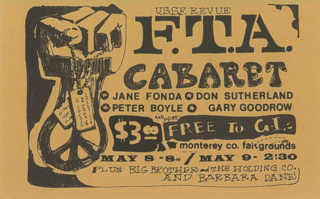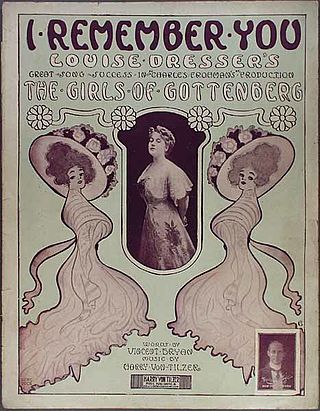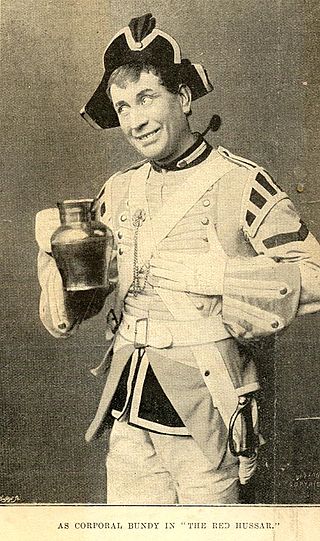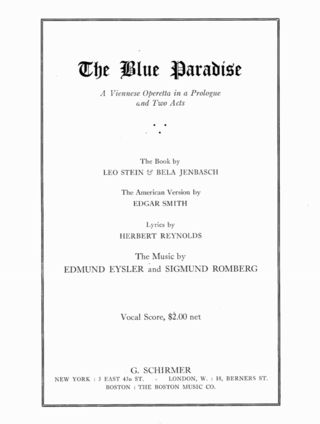David Ahenakew was a Canadian First Nations (Cree) politician, and former National Chief of the Assembly of First Nations.

The "Londonderry Air" is an Irish air that originated in County Londonderry, first recorded in the nineteenth century. The tune is played as the victory sporting anthem of Northern Ireland at the Commonwealth Games. The song "Danny Boy" written by English lawyer Fred Weatherly uses the tune, with a set of lyrics written in the early 20th century.

In the United States armed services, a military cadence or cadence call is a traditional call-and-response work song sung by military personnel while running or marching. In the United States, these cadences are sometimes called jody calls or jodies, after Jody, a recurring character who figures in some traditional cadences; Jody refers to the person with whom a servicemember’s significant other cheats while they are deployed.

"You're a Grand Old Flag" is an American patriotic march. The song, a spirited march written by George M. Cohan, is a tribute to the U.S. flag. In addition to obvious references to the flag, it incorporates snippets of other popular songs, including one of his own. Cohan wrote it in 1906 for his stage musical George Washington, Jr.
"Streets of Laredo", also known as "The Dying Cowboy", is a famous American cowboy ballad in which a dying ranger tells his story to another cowboy. Members of the Western Writers of America chose it as one of the Top 100 Western songs of all time.
"Sussex by the Sea" is a song written in 1907 by William Ward-Higgs, often considered to be the unofficial county anthem of Sussex. It became well known throughout Sussex and is regularly sung at celebrations throughout the county. It can be heard during many sporting events in the county, during the Sussex bonfire celebrations and it is played by marching bands and Morris dancers across Sussex. It is the adopted song of Brighton & Hove Albion Football Club, Sussex Division Royal Naval Reserve, Sussex Association of Naval Officers and Sussex County Cricket Club.
"Over the Hills and Far Away" is a traditional British song, dating back to at least the late 17th century. One version was published in Thomas D'Urfey's Wit and Mirth, or Pills to Purge Melancholy; a very different one appeared in George Farquhar's 1706 play The Recruiting Officer. A version also appears in John Gay's The Beggar's Opera of 1728.

The FTA Show, a play on the common troop expression "Fuck The Army", was a 1971 anti-Vietnam War road show for GIs designed as a response to Bob Hope's patriotic and pro-war USO tour. The idea was first conceived by Howard Levy, an ex-US Army doctor who had just been released from 26 months in Fort Leavenworth military prison for refusing orders to train Green Beret medics on their way to the Vietnam War. Levy convinced actress Jane Fonda who recruited a number of actors, entertainers, musicians and others, including the actors Donald Sutherland, Peter Boyle, Garry Goodrow and Michael Alaimo, comedian and civil rights activist Dick Gregory and soul and R&B singer Swamp Dogg. Alan Myerson, of San Francisco improv comedy group The Committee, agreed to direct, while cartoonist and author Jules Feiffer and playwrights Barbara Garson and Herb Gardner wrote songs and skits for the show. Fred Gardner, the originator of the antiwar GI Coffeehouse movement, became the Tour's "stage manager and liaison to the coffeehouse staffs." At various times other actors, writers, musicians, comedians and entertainers were involved. The United States Servicemen's Fund (USSF), with Dr. Levy as one of its principal organizers, became the official sponsor of the tour. The anti-Vietnam War USSF promoted free speech within the US military, funded and supported independent GI newspapers and coffeehouses, and worked to defend the legal rights of GIs. Sponsorship was later taken over by a group called the Entertainment Industry for Peace & Justice (EIPJ).

The Girls of Gottenberg is an Edwardian musical comedy in two acts by George Grossmith, Jr. and L. E. Berman, with lyrics by Adrian Ross and Basil Hood, and music by Ivan Caryll and Lionel Monckton. P. G. Wodehouse's personal papers indicate that he wrote the lyrics for one song, "Our Little Way", but this was not included in the libretto of show, and he was not credited as a lyricist. Set in Germany, the comedy of the show is largely based on stereotypes of the German people and their culture as seen seen through a British lens.

The Red Hussar is a comedy opera in three acts by Edward Solomon, with a libretto by Henry Pottinger Stephens, concerning a young ballad singer who disguises herself as a Hussar to follow her penniless beloved to France. By a feat of gallantry, she saves his life and is promoted to the rank of sergeant. It turns out that she is a rich heiress, and all ends happily.
Militant use of children in Sri Lanka has been an internationally recognized problem since the inception of the Sri Lankan civil war in 1983. The primary recruiters of under the age of 18 children are the rebel LTTE movement and the Karuna group, a break-away faction of the LTTE working with Sri Lanka Forces. Human Rights Watch criticized that threats and intimidation were used by the LTTE to force Tamil families in Sri Lanka to furnish children for military duty. When families reject, their children are sometimes kidnapped at night from their homes or forced recruited while walking to school. Parents who refuse to allow their children to be recruited suffer retaliation by the Tamil Tigers, which may include violence or detention.

The Blue Paradise is a musical in a prologue and two acts, with music by Edmund Eysler, Sigmund Romberg and Leo Edwards, lyrics primarily by Herbert Reynolds, and a book by Edgar Smith, based on the operetta Ein Tag im Paradies by Eysler with original text by Leo Stein and Bela Jenbach. The story is set in a Viennese cafe, where a man realizes that he cannot recapture his long lost love.

In the United Kingdom, military conscription has existed for two periods in modern times. The first was from 1916 to 1920, and the second from 1939 to 1960. The last conscripted soldiers left the service in 1963.

Mario Benjamin Menéndez was the Argentine governor of the Falklands during the 1982 Argentine occupation of the islands. He also served in the Argentine Army. Menéndez surrendered Argentine forces to Britain during the Falklands War.

The Definitive Collection (A Life in Music) is a compilation album by Cilla Black, released in 2009 to celebrate her 45-year career in show business.

"Live and Learn" is the first episode of the first season and the series premiere of the TNT science fiction drama Falling Skies. The episode was written by series creator and executive producer Robert Rodat and directed by Carl Franklin. The episode first aired in the United States on June 19, 2011, alongside the second episode.

"Sister Susie's Sewing Shirts for Soldiers" is a World War I era song that tells about a young girl sewing shirts for soldiers fighting abroad. Her efforts are in vain however, as "Some soldiers send epistles, say they'd sooner sleep in thistles, than the saucy soft short shirts for soldiers sister Susie sews."

"The Worst Is Yet to Come" is a World War I-era song recorded on December 12, 1918 in Camden, New Jersey. Sam M. Lewis and Joe Young provided the lyrics. Bert Grant was the composer. The song was published by Waterson, Berlin & Snyder, Inc. in New York City. Billy Murray performed the song. Artist Albert Wilfred Barbelle designed the cover art for the sheet music. On one version of the cover, a soldier is in position to bayonet a prisoner in bed.
Song Reader: The Musical is a stage production with music by Beck, and book and arrangements by Harvey Droke and Daniel Hornal, which premiered at the Capital Fringe Festival in Washington, D.C. in 2016. The music is arrangements from Song Reader, a 2012 Beck concept album released only in sheet music form.

"What's Your Problem" is a song by English synth-pop duo Blancmange, released on 27 August 1985 as the lead single from their third studio album Believe You Me (1985). It was written by Neil Arthur and Stephen Luscombe, and produced by Stewart Levine. "What's Your Problem" reached No. 40 in the UK and No. 30 in Ireland. A music video was filmed to promote the single, which received heavy action play on the European music TV channel Music Box.